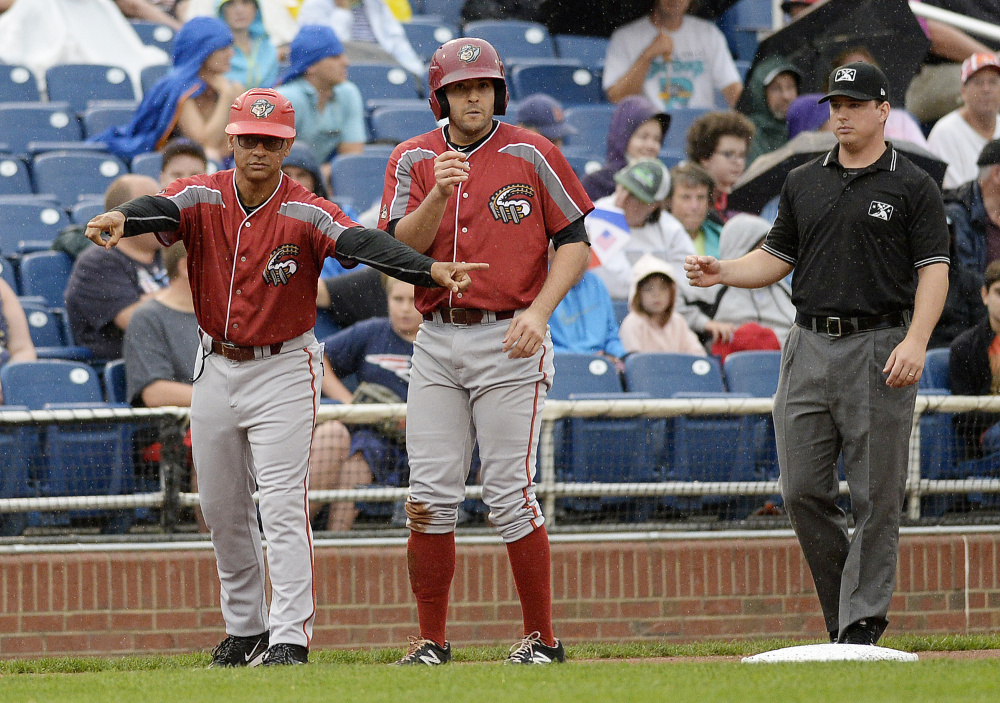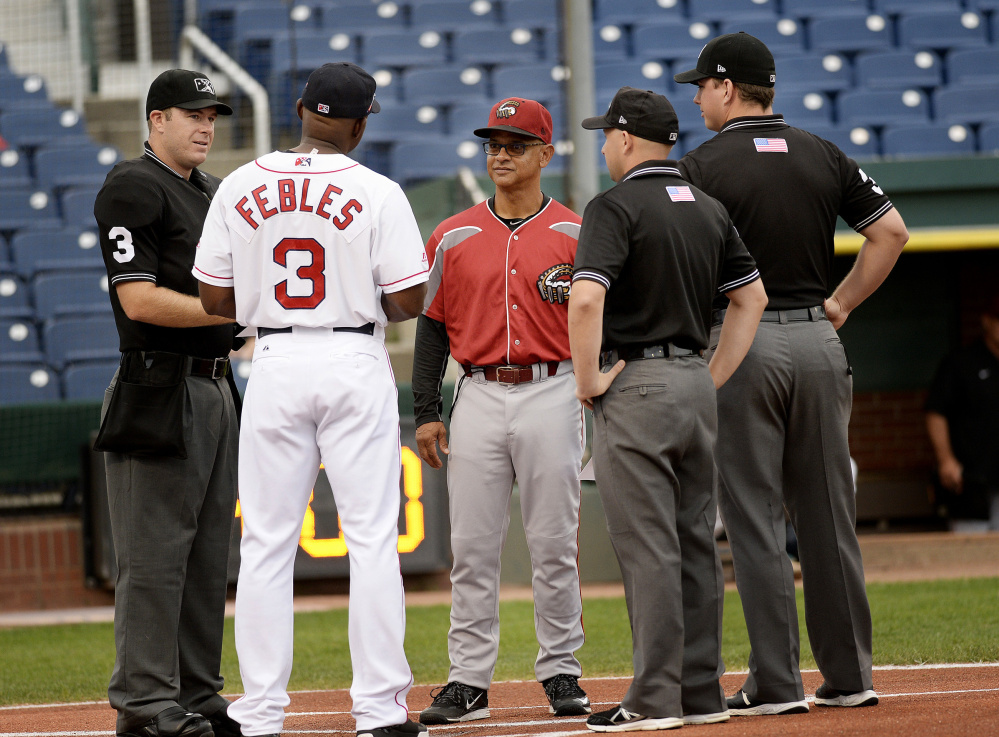He was a major league all-star infielder who also spent nine years as a major league coach, six years as a bench coach under a successful manager, Ozzie Guillen.
So why is Joey Cora managing the Altoona Curve and not a major league team?
“Very good question,” said Portland Sea Dogs Manager Carlos Febles. “The guy has a good resume. Was a bench coach for many years; was known as one of the smartest players in the game.
“That’s a guy you’d expect to be managing in the big leagues.”
Yet on Wednesday night, Cora managed the Curve against Febles’ Sea Dogs.
Hadlock Field featured two managers who are natives of Latin America (Cora from Puerto Rico, Febles the Dominican Republic).
That’s two more than are in major league baseball.
When the Atlanta Braves fired Cuban-born (and former Sea Dogs manager) Fredi Gonzalez in May, that left no Latin managers in the majors, although Latin Americans account for nearly 30 percent of players.
“The system and the interview process have not been fair to Latin Americans,” said Cora, 51, who has interviewed for six major league managing jobs with no offers.
There are only two minorities managing in the big leagues, both African-American – veteran Dusty Baker (Nationals) and first-timer Dave Roberts (Dodgers).
In 1999, then-commissioner Bud Selig ruled that major league teams had to interview minority candidates when filling vacancies for leadership positions, including general manager and field manager.
Before 1999 there had been only four Latin full-time (not interim) managers – Preston Gomez, Cookie Rojas, Felipe Alou and Tony Perez.
Since then there have been only six more native Latin- American managers – Tony Pena, Carlos Tosca (another former Sea Dogs manager), Guillen, Manny Acta, Edwin Rodriguez and Gonzalez.
Cora said the problem with the “Selig Rule” is teams interview Latins and other minorities with no intention of hiring them.
“Sometimes we get interviewed to get a check mark because they have to interview minorities,” Cora said. “But the people who are doing the interviews are not as prepared to interview us – or haven’t been.”
That lack of preparation becomes obvious when, for example, an interviewer is surprised to learn Cora attended Vanderbilt.
Cora said he grew up wanting to manage.
“My dream wasn’t to be a major league baseball player. My dream always, when I was little, was to be a big league manager,” he said. “But everybody has different dreams. That’s the way it goes.”
When Cora’s 12-year playing career was over after the 1998 season, he moved into coaching, managing in the minor leagues from 2001-03 before joining Guillen’s staff with the Chicago White Sox.
Cora went with Guillen to the Marlins in 2012. When Guillen was fired, Cora was gone, too. He’s been out of baseball the past three years – “I’ve been with my kids” – until the Pirates called about the Altoona job.
Cora won’t speak about future goals. “The goal is to get these guys to be better persons and better people,” he said.
Cora’s name still is floated when it comes to future managerial candidates, although his younger brother, Alex Cora, 40, may be higher on the list. Alex Cora, a former Red Sox infielder and now an ESPN commentator, interviewed for at least three openings last year – the Nationals, Padres and Marlins.
This is the first time since 1991 there has been no Latin Americans managing in the majors – there were as many as four at one time, in 2011. It seems a matter of time before more Latins are managing again.
Besides the Cora brothers, other Latin American managerial candidates include Sandy Alomar (Indians first base coach), Omar Vizquel (Tigers first base coach), Luis Rivera (Blue Jays third base coach) and Roberto Kelly (Giants third base coach).
Febles might someday be on that list.
“Every coach should dream of one day being in the big leagues,” said Febles, 40, who is in his first year as a Double-A manager.
Reaching the big leagues as a coach or manager, said Febles, is a matter of making contacts.
“You’ve got to know the right people,” Febles said. “You’ve got to keep working and learning, and get the right opportunity.
“I don’t care if you’re white, black or Latin, you have to prove yourself in order to manage in the big leagues.”
Send questions/comments to the editors.





Comments are no longer available on this story